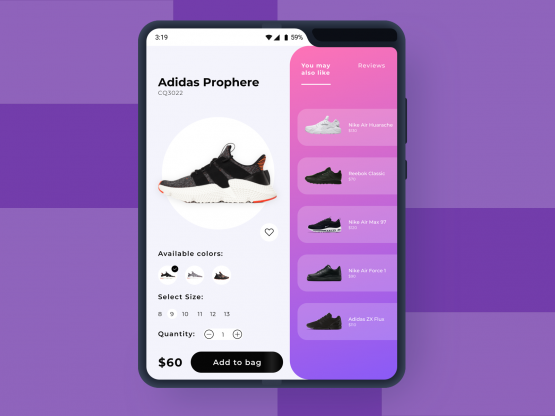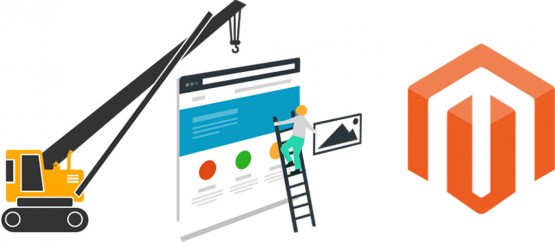Magento product questions is the extension that every bands should use into online stores. Faced with an impossible number of choices and competing products, online and in-store shoppers have an endless stream of questions when considering purchases. The ability to ask questions is a key deciding factor for consumers and is second only to price competitiveness. And in a study, the Harvard Business Review found that consumers value easy access to reliable information about products while shopping, with many reporting that FAQs and online magento product questions tools are valuable resources.
The simple truth is that unanswered questions can keep shoppers from buying your products and, even worse, cause potential customers to distrust your brand. For good reason, magento product question tools have become a staple in e-commerce. These tools allow brands and other consumers to directly answer product questions from in-market shoppers. That’s a big benefit to shoppers, but it’s an even bigger benefit for brands and retailers. Building magento product questions into your product pages enables you to have a one-to-one conversation with your shoppers. Whenever you’re able to have a direct channel to your audience, especially when they are ready to make a purchase, your brand will benefit. Here are the the top reasons to include a magento product questions tool on your e-commerce site.
1. Reach shoppers at key decision moments
Let’s start with the biggest benefit of magento product questions tools: When shoppers are asking questions, they’re engaged and typically well into the decision stage. In short, they’re ready to buy something and just waiting for validation. There are two types of common consumer questions: quantitative and qualitative.
With quantitative questions, shoppers are asking or looking for product-specific questions that center around features: “Does this dress come in black?”, “How many HDMI ports does this TV have?”, “Is this gluten-free?”. These questions focus on the hard details of a product or service.
Qualitative questions, on the other hand, tend to focus on more subjective product details and personal opinions: “Is this a good blender for green smoothies?”, “What do you think of the picture quality on this TV?”. These types of questions see the shopper trying to either validate or discredit their own opinions. In short, they’re looking for a second opinion, preferably from someone who has already experienced the product.
When you can provide answers to these two kinds of questions, it makes for a powerful combination. Facts and figures quickly reduce uncertainty about your product, but decisions tend to be rooted in emotion. Quantitative questions give shoppers facts and figures, while qualitative questions tell a story about the product.
2. Organically build a list of FAQs to increase conversion
A list of frequently asked questions (FAQs) is one of the most tried and true methods of improving consumer confidence. The same study by Harvard Business Review showed the value of making it easy for consumers to gather, understand, and weigh their options. Brands that did this well were 86% more likely to be purchased by the consumers considering them. They were 9% more likely to be repurchased and 115% more likely to be recommended to others. The easier a brand makes the purchase-decision journey, the better, and an FAQ list can move shoppers quickly towards validation.
But making an FAQ is tough. You have to do customer research to identify common questions and pain points, and then you have to answer them. And you have to do that across all of your products. This can be a project.
With the right magento product question tool, you can do just that. By giving shoppers a platform to ask their questions, you build yourself a powerful repository of consumer insight into common questions you’re facing in the market.
3. Build more social proof around your products
Social proof has been one of the buzzier concepts in e-commerce over the past few years and for good reason. It explains a psychological and social phenomenon where people look to their peers to figure out the right thing to do. It’s the “if everyone is doing it, then I should be” feeling.
In the context of commerce, it’s a powerful force. Simply put, people often turn to their peers when making purchasing decisions. That’s why consumer-generated content (CGC) like ratings and reviews have proved so successful in e-commerce — at their most basic, they prove that other people are using something.
Magento product questions tools scratch a similar itch. In addition to allowing customers to ask questions and find answers, a magento product questions platform also shows shoppers that other people are interested in – and own – the product in question. But magento product questions goes one step further than ratings, reviews, and other forms of CGC — it allows shoppers to ask why the crowd is moving in a certain direction.
4. Boost SEO with key content to attract more shoppers
When you’re juggling a lot of products — and a ton of product pages — it’s likely that you’re missing details somewhere. The more information you provide on product pages, the more customer questions you answer and the better your page performs in search.
As an added bonus, allowing customer questions on your site organically boosts your SEO. First, when your product pages are constantly being updated with new questions and answers, that means your pages have fresh content, which positively impacts your search ranking. Second, people’s search queries often match the keywords in customer questions, so your pages rank higher and people are driven right to your products. Let Q&A do the heavy lifting for SEO on your product pages.
Related Topic:
Local SEO: How to make the use of local SEO for your e-commerce website
From the bazaar to the marketplace to the mall, shopping has long been a social activity — consumers ask each other questions, talk to store assistants, and examine and compare products. While e-commerce has changed that, the tools that bring those in-store experiences online have helped fill the experiential gap.
Magento product questions tools do just that, offering up answers to shoppers when they’re on the cusp of making a decision. That makes for a more positive buying experience for the shopper. But it also helps brands distinguish themselves and their products while engaging shoppers at the right moment with the right content.
Magento product questions feature list:
At front-end:
- Customers and guests can ask questions on product pages and get answered right here.
- Customers can set questions to be private or public
- Customers and guests can add answers for a question
- Customers and guests can rate all the questions
- Customers and guests can see and find suitable questions and answers on product pages for the similar issues they are in need of advice.
- Customers and guests can find and see all questions and answers related to the products on FAQs pages
In Admin back-end:
- Admin can approve or decline questions and answers
- Admin can set a question to be private or public
- Admin can create answers and questions in admin panel
- Admin can create topics
- Admin can assign the questions to a topic
- Admin can assign the questions to other products
- Admin can set who can add questions (registered or guest)
- Admin can set who can rate questions (registered or guest)
You certainly don’t want to lose customers for such a circumstance. You want to supplement a good utility for your online shop which facilitates your customers to enter their questions of the products and get answered instantly right there. That would be a perfect solution and it’s exactly what our Magento product questions extension is providing.



